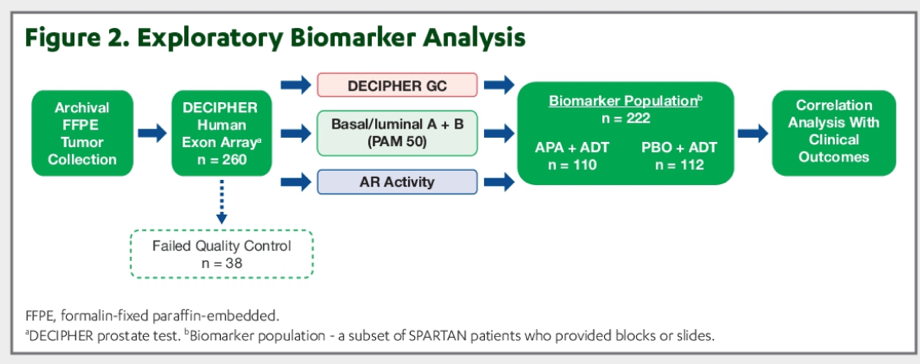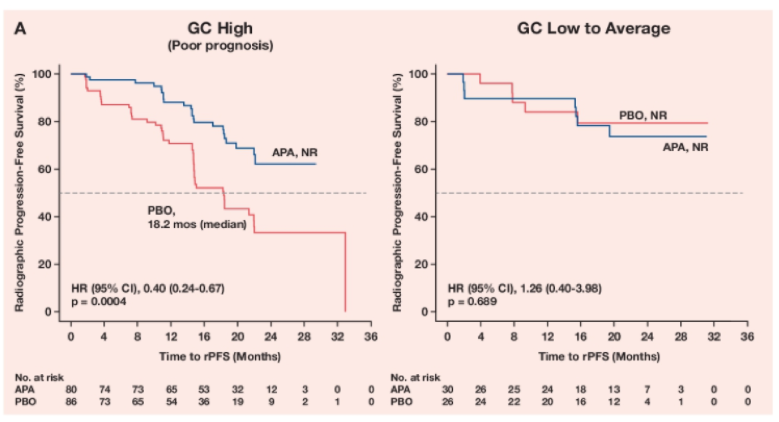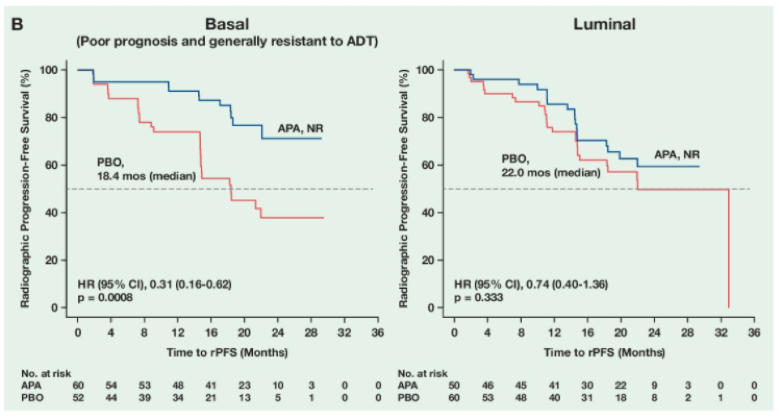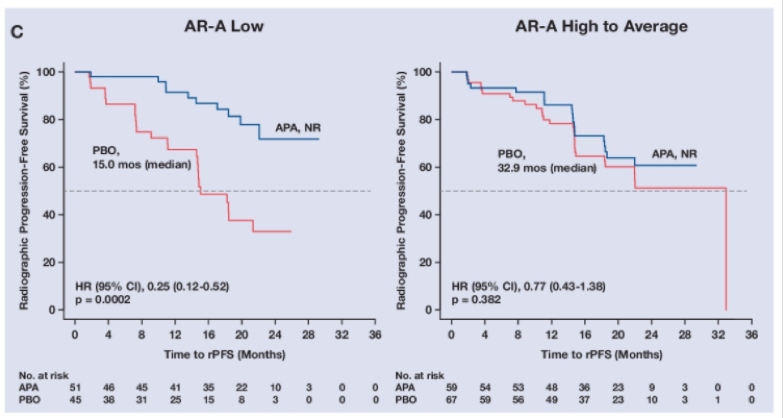(UroToday.com) The phase 3 TITAN study suggested a benefit for radiographic progression-free survival (rPFS) and overall survival (OS) for the combination of the androgen receptor (AR) antagonist apalutamide in combination with androgen deprivation therapy (ADT) as compared to ADT alone in patients with metastatic castration sensitive prostate cancer (mCSPC). In this poster, Felix Feng, MD, presented results of a post-hoc exploratory analysis of whether the Decipher Genomic Classifier (GC) score, and AR activity score, or an expression score for basal/luminal phenotype were associated with outcome for patients on the TITAN study.

In the 222 patients analyzed for this biomarker study, 75% were classified as high risk by GC score (score > 0.6), 50% had a basal phenotype (poorer prognosis), 1.4% of patients were the luminal A phenotype (best prognosis), and 43% of patients had a low AR activity signature. The proportion of molecular subtypes was similar across treatment groups, and clinical characteristics were well-balanced between groups.
Using a Cox proportional hazards model, the authors examined the association between molecular subtype and rPFS, and found that apalutamide seemed to significantly benefit patients with a high GC score, basal phenotype, and low AR activity. ¬¬



The authors also looked at the overlap between molecular subtypes in this study population. They observed that 63% of patients with a basal subtype also had low AR activity. 43% of patients with a high GC score had low AR activity, and 45% of patients with a high GC score had a basal phenotype.
These findings can be compared with similar analyses reported in Abstract 5521 at this meeting.
Presented by: Felix Y. Feng, MD, Vice Chair for Translational Research and Professor of Radiation Oncology, University of California San Francisco, San Francisco, CA
Written by: Alok Tewari, MD, PhD, Medical Oncology Fellow at the Dana-Farber Cancer Institute, at the 2020 ASCO Annual Meeting, Virtual Scientific Program #ASCO20, May 29-31, 2020.


